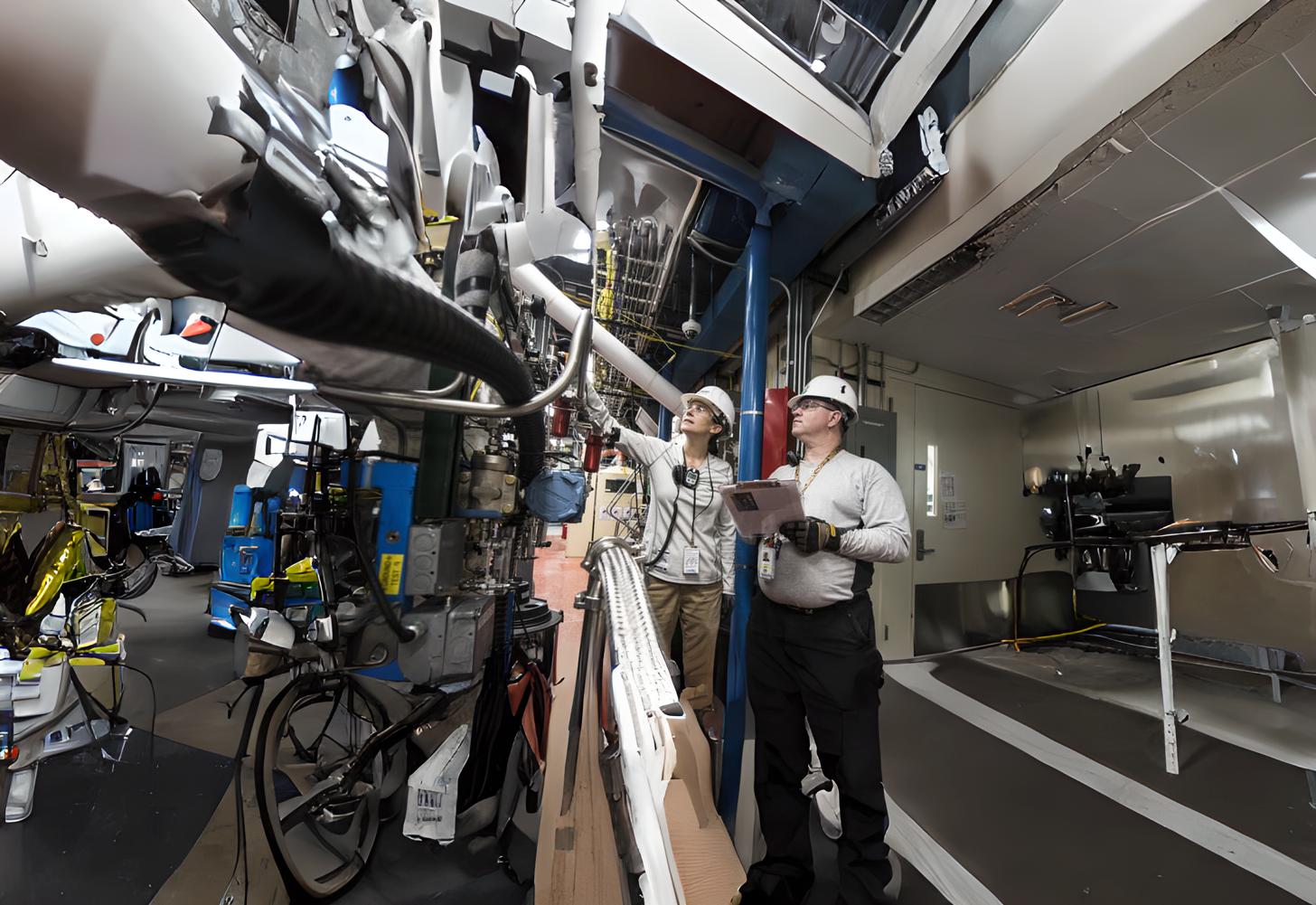How to Select a CMO in Biomanufacturing
 6 years ago
By Josh Neil
6 years ago
By Josh Neil

Experts often regard biomanufacturing efficiency as the most important part of global bioprocessing. But efficiency can be almost impossible as companies juggle hundreds of priorities across dozens of areas in the pipeline. Best practice can easily be subsumed by a lack of equipment or skill, bottlenecks and time delays, or supply chain issues. Contract manufacturing organisations (CMOs) can help.
These organisations can implement performance enhancements that can increase this efficiency, or simply take over whole sections of the manufacturing process that companies lack the time or resource to complete themselves. And the need for CMOs is growing. Over the last five years, large and emerging biotech companies have outsourced almost as much as big pharma, with the number of companies spending up to $50 million on CMOs each year increasing rapidly.
Biopharmaceutical companies are continuing a years-long trend of outsourcing R&D activities, fuelling the demand for CMOs more than ever. Biologics and biosimilars have driven this, with developers largely preferring to outsource manufacturing. CMOs have seen a 15% increase in business from biosimilars in recent years. Market worth in 2018 stood at around $80 billion, with API research most profitable. Predictions for 2027 are looking at a worth of $225 billion.
What can CMOs do for Biomanufacturers?
Obviously, creating new drugs is a difficult task, one becoming more expensive and arduous by the day. Maintaining the entire drug development process in-house is extremely expensive and potentially wasteful. Companies need varied and pricey equipment, and can often find themselves lacking in specialised staff or knowledge for the job.
To combat this, manufacturers are increasingly turning to CMOs to help. With the recent boom in outsourcing, the number of CMOs has similarly grown, ranging from vast organisations to specialised services, covering one or many areas in the biomanufacturing process.
CMOs span the entirety of the pipeline, performing pre-formulation or formulation, research, method development, or scale-up and commercialisation. According to a 2017 report, CMOs can save manufacturers up to 35% on costs. This is on top of improving efficiencies in process and manufacture and validating products with their expertise. Some CMOs also offer development services, shortening and improving the speed and efficiency of the product development process.
Many CMOs also manage the supply chain for a product, freeing up vital resources to be redeployed in other areas. For smaller companies, the choice to stop managing a large number of vendors and logistics companies is a no-brainer.
CMOs can also help newer companies with their knowledge and expertise. Generally, these companies will have a firm grasp of how to best manufacture particular products. They will also understand optimisation and reducing unnecessary material. This knowledge alone can help manufacturers create products more efficiently and cheaply.
Naturally, CMOs are most in demand with newer and rising companies, who most need to reduce costs and focus on their core expertise areas. Often, contracting a CMO will allow a company to focus on marketing and selling products, without having to build production units or invest in GMP-grade facilities.
Outsourcing is often most useful where:
- There is a large volume under capacity
- A company lacks necessary tools, experience or knowledge to bring a molecule to market
- Reducing costs and mitigating risk in staffing, validating, and manufacturing a product is a must
When Should Biomanufacturers Select a CMO?
While many companies know that they want to offshore tasks to a CMO before they have started development and production, others only decide at some point during the process itself.
Generally, the sooner the decision is made the better, as this provides the most comfortable timelines and least chance of risk or error. While often quicker than moving all processes in-house, CMOs can still take months over documentation, technology transfer and regulatory affairs. CMOs should usually be selected for a project shortly before general requirements are set, so that production timelines can be forecast and analyses run.
Contracting a CMO later in the process, for example after specifications are locked-in, can have a number of issues. Time will be a greater factor in the process. In particular, a CMO’s specialists will only be able to look at specifications after they are locked. Should any bottlenecks or availability issues be found at that point, it could damage manufacturing at scale.
Contracting a CMO at this later stage in development, however, does mean that tech transfer activity can begin straight away. It also means fewer delays for change orders.
How to Choose the Right CMO
The benefits of finding a CMO to help manufacture a product are evident. But with so many CMOs extant in the market and given considerations to take into account for each, choosing just one CMO to work with is challenging.
Fundamentally, the chosen CMO must be able to meet specified client needs and to have a good long-term working relationship with them. The first difficulty can be seen as the easier one, though this is not always the case. While often a CMO will be able to demonstrate capability, performance and other statistics to a client, should a company hope to strengthen their current weaknesses it can often be difficult to gauge a CMO’s utility in that area.
The second necessity, a good working relationship, is more difficult to define and find. Many CMOs seem to think that the key component missing from many such relationships is constant communication. Trust and transparency were rated highly by most companies offshoring work. Other key components of a good relationship included flexibility, understanding cultural differences, sharing relevant information and mutual respect.
Generally, a clear process for choosing the right CMO does exist. This involves understanding your own company weaknesses and needs, creating a CMO short-list who seem a good fit for your work, and conducting due diligence. We set out the specifics below:
Understand your company and product needs: What do you need from a CMO? What is missing in your own organisation that would best be outsourced, or what equipment or knowledge do you lack? Understanding these factors, and what would be best for your product, is the first step to identifying CMO requirements.
Determine necessary criteria for a partnership: Create a portrait of necessary traits and practices, based on your own company and product needs. Companies should also keep in mind ideal working relationship and culture, and their understanding of acceptable risk in the partnership, location, experience, confidentiality and compliance history. Protecting intellectual property is a particular must – though most CMOs will have strong checks in place to prevent theft from occurring.
Research and contact CMOs: using this list, companies should then conduct research on CMOs who best fit their criteria. This can be conducted either through word-of-mouth and recommendations or online. Once the list is made, CMOs should be contacted and further details discussed. This should include previous experience with the relevant molecule or processes, their full technical capabilities and experience, and how they operate – this can be supplemented with on-site visits for promising candidates. Businesses should check for cleanliness, functionality, and apparent capability.
Audit and negotiate contracts: Once the last few candidates have been chosen, a full audit should be undertaken, with a review of documentation systems and in-depth discussion of the work to be conducted. It is recommended to continue negotiations with all viable candidates until a final contract is signed off. This will prevent companies from returning to square one if a potential contract falls through last-minute.
CMOs can be a crucial component in the biomanufacturing process. They are however one which takes considerable work to sift through, decide on, and maintain. Chosen well, a good CMO will negate the weaknesses of a manufacturer and provide cheaper, faster experience and technology. They can easily help a company grow and manufacture faster than ever. But chosen wrongly, a poorly fitting CMO could see new bottlenecks and delays in the process, culture clashes and miscommunication, and damage done to a business’ profit and reputation. More than many areas in manufacturing, it pays to research and ensure a CMO work well for you.
Joshua Neil, Editor
Proventa International

Enhancing Pharma Manufacturing Efficiency through Advanced Automation
In today's fast-paced pharmaceutical industry, efficiency plays a critical role in meeting the increasing demands for drugs and medical products. To achieve optimal efficiency, pharmaceutical manufacturers are turning to advanced automation solutions. Advanced automation encompasses cutting-edge technologies like robotics, artificial...
3 years agoEnhancing Pharma Manufacturing Efficiency through Advanced Automation
In today's fast-paced pharmaceutical industry, efficiency plays a critical role in meeting the increasing demands for drugs and medical products. To achieve optimal efficiency, pharmaceutical manufacturers are turning to advanced automation solutions. Advanced automation encompasses cutting-edge technologies like robotics, artificial...
3 years ago
DeepMind’s AI Predicts Structures for More Than 350,000 Proteins
In 2003, researchers sequenced approximately 92% of the human genome, a huge achievement and very recently researchers have completed the entire process. Now, the latest innovation in AI technology has predicted the structure of nearly the entire human proteome. The...
5 years agoDeepMind’s AI Predicts Structures for More Than 350,000 Proteins
In 2003, researchers sequenced approximately 92% of the human genome, a huge achievement and very recently researchers have completed the entire process. Now, the latest innovation in AI technology has predicted the structure of nearly the entire human proteome. The...
5 years ago
COVID-19 Booster Controversy: Disputes Across the Pharma Industry
Despite almost two thirds of the adult population in the UK having been vaccinated, cases are on the rise, which appear to be associated with the highly-transmissible delta variant of COVID-19. According to The European Centre for Disease Prevention and Control,...
5 years agoCOVID-19 Booster Controversy: Disputes Across the Pharma Industry
Despite almost two thirds of the adult population in the UK having been vaccinated, cases are on the rise, which appear to be associated with the highly-transmissible delta variant of COVID-19. According to The European Centre for Disease Prevention and Control,...
5 years ago